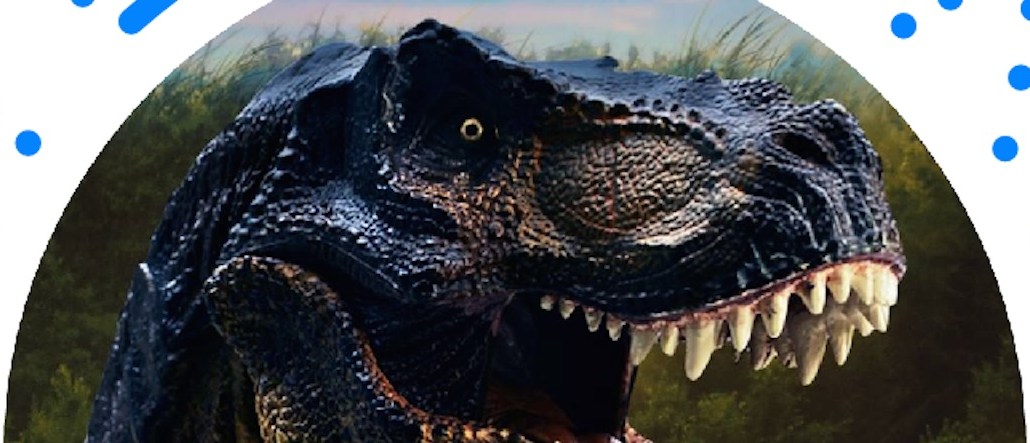Secure your place at the Digiday Publishing Summit in Vail, March 23-25

It seems even extinction doesn’t stop you from being on Facebook Messenger.
National Geographic Kids is the latest publisher to try out chatbots on the platform. Tina the T-Rex, naturally, is using Messenger to teach kids about dinosaurs over the summer break, despite a critical lack of opposable thumbs.
“It’s a brand awareness tool, really the ultimate aim is to drive magazine subscriptions,” said Gemma Chandler, digital editor at the publication. Aside from driving subscriptions, the hope is this will tell the publisher what kids really want to know about dinosaurs, and inform its content strategy by getting into the mindset of its readers. “We put out monthly magazine but don’t have the personal relationship with people,” she added.
Despite being 65 million years old, Tina is pretty limited in her bot capabilities; she can answer from a pre-programmed script, devised by tech company Rehab Studio and tweaked by Chandler, on things like dinosaur diet and way of life. Faced with any profanities, she responds with “You don’t want to get on my bad side, so let’s keep things clean,” so there’s no danger of her going rogue in front of the kids. When users say goodbye they can sign up to the magazine so that the publisher can track conversions.

The bot was created for free by tech company RehabStudio, who approached the publisher in April, and will go live on Facebook pages in South Africa, the U.K., Australia and New Zealand for the next week. Chandler wasn’t able to share any specific engagement goals, but on its site it receives around 2,000 comments a month from kids, so the desire to talk back is there.
National Geographic Kids, a licensed company separate from National Geographic, has around 45,000 monthly subscribers to its print magazine, with an additional 25,000 sold on newsstands, according to the company this is its highest level of subscribers. The magazine content strategy is much more in line with readers browsing in their downtime.
“The website content is quite curriculum based,” explained Chandler, “much of our traffic comes from Google search, with children searching for answer to their homework. So they don’t really stick around on the site.” Internal Google Analytics show monthly unique figures can get up to 450,000 in busy term-time periods.
On Facebook, National Geographic Kids has nearly 12,000 followers, 90 percent of which it estimates are moms. Because children under 13 years old have to use their parent’s Facebook account to use Tina, unlike many of the 11,000 other brand and publisher bots on Facebook Messenger, National Geographic Kids isn’t going to the platform for the reach. Other brands like Pizza Hut and 1-800 Flowers, are using bots on the platform for utilities like making orders. Publishers, like Business Insider and CNN, are using them to share information.
The idea is that children use the bots with parents just like they read the magazine: 91 percent of parents read it with their kids. It’s timely too, with most of the U.K. schools breaking up for summer holidays this week, a time when the curriculum-led traffic to the site dips.
Since Chandler joined in November she has been tasked with evening out the publisher’s reliance on referrals, tipping the balance more towards social. Currently, analytics from SimilarWeb show that 84 percent of referral traffic is from search, and just 1.3 percent of traffic from social.
This is a short-term project, and the publisher previously didn’t have aspirations for chatbots before RehabStudio came calling. A new site design, more video production and a presence on Snapchat have been the priorities. As such, making Tina extinct after just a week is probably the right move. “Anyone that inboxes you on Facebook Messenger will meet Tina, including anyone looking for answers to customer service questions.”
More in Media

How creator talent agencies are evolving into multi-platform operators
The legacy agency model is being re-built from the ground up to better serve the maturing creator economy – here’s what that looks like.

Why more brands are rethinking influencer marketing with gamified micro-creator programs
Brands like Urban Outfitters and American Eagle are embracing a new, micro-creator-focused approach to influencer marketing. Why now?

WTF is pay per ‘demonstrated’ value in AI content licensing?
Publishers and tech companies are developing a “pay by demonstrated value” model in AI content licensing that ties compensation to usage.





